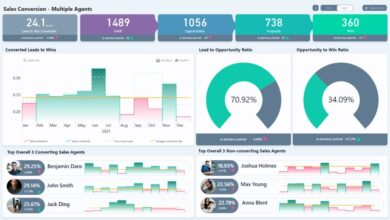Beyond the Classroom: Exploring Alternative Careers in Education

Education extends far beyond the traditional classroom setting, offering a variety of career paths that can suit different interests, skills, and passions. While teaching remains a noble profession, the field of education is rich with alternative roles that contribute significantly to learning and development. This article explores some intriguing career options available outside of conventional teaching roles, demonstrating that the sector is vibrant with opportunities for innovation, leadership, and direct impact on educational policy and practice. Whether you’re a seasoned educator looking for a change or a newcomer contemplating your entry into this dynamic field, understanding these alternatives can open up new avenues for professional fulfillment.
Curriculum Designer
Curriculum designers play a pivotal role in shaping educational experiences, creating the content and structure of programs used by educators and institutions. They work closely with teachers to develop materials that align with educational standards and cater to diverse student needs. In this role, creativity and a deep understanding of pedagogy are essential as designers strive to produce engaging and effective curricula. For those passionate about direct educational impact without daily classroom interactions, this career offers a rewarding path.
Educational Consultant
Educational consultants provide expertise and advice to schools, educational organizations, and even families, helping to enhance instructional practices, integrate new technologies, and improve student outcomes. Many consultants possess an EdD degree, which equips them with the leadership and analytical skills necessary to address complex educational challenges effectively. Their work often involves assessing educational programs and practices, making recommendations for improvements, and assisting with the implementation of new policies or technologies.
Instructional Coordinator
Instructional coordinators oversee school curriculums and teaching standards. They review and implement educational material and ensure that schools meet quality standards. By organizing training sessions for teachers and evaluating the effectiveness of curricula, instructional coordinators ensure that the educational content is not only up to date but also effective in fostering student learning. This role is ideal for those who enjoy a mix of administrative work and hands-on involvement in educational strategy and development.
Director of Educational Technology
Technology continues to play a critical role in reshaping education. A Director of Educational Technology leads the integration of digital tools into educational settings, working to enhance both teaching and learning experiences. This position involves evaluating new technologies, coordinating with educators and administrators to implement these tools, and training staff to use technology effectively. For tech-savvy individuals who are passionate about education, this career path offers a chance to be at the forefront of educational innovation.
Education Policy Analyst
Education policy analysts have the crucial task of examining and shaping the policies that govern educational systems. They research and analyze data to develop recommendations for new education policies or modifications to existing ones. These professionals often collaborate with government bodies, think tanks, and educational institutions to advocate for changes that aim to improve educational outcomes. For those interested in the intersection of education, law, and public policy, this role offers a significant opportunity to influence education at a systemic level.
Educational Nonprofit Leader
Leading a nonprofit organization in the educational sector is an inspiring option for those driven by a mission to make a broader social impact. These leaders work to secure funding, manage resources, and oversee programs that support education in underserved communities or focus on specific educational causes. This role requires a blend of passion for education, skill in management, and aptitude for fundraising and community engagement. It’s a career path that not only demands dedication but also offers the reward of making real, tangible differences in the lives of learners.
Corporate Trainer
Corporate trainers are essential in the business world, helping companies ensure that their employees are skilled and knowledgeable. In this role, you would develop and deliver educational programs that enhance employee capabilities and performance. The scope of work can vary from teaching soft skills like communication and teamwork to more technical tasks such as software training. For educators who enjoy teaching adults and want to apply their skills in a corporate environment, this career offers a dynamic and impactful setting.
Museum Educator
Museum educators develop and coordinate educational programs and workshops for visitors of all ages, from young children to adults. This role blends a passion for education with a love for art, culture, or science, depending on the museum’s focus. Museum educators create interactive learning experiences that enhance visitors’ understanding and appreciation of exhibits, making learning both accessible and engaging. This career is perfect for those who enjoy a more informal teaching environment and public engagement.
Adult Literacy and High School Equivalency Diploma Teachers
Teaching adults presents a unique set of challenges and rewards, especially in the realms of literacy and high school equivalency. Educators in this field help adults improve reading, writing, and basic maths skills or prepare them to pass high school equivalency tests. This role not only enhances the educational and career prospects of adults but also enriches their everyday lives. For educators looking to make a profound impact on adult learners, this career path offers a deeply fulfilling experience.
Learning and Development Manager
In many organizations, a learning and development manager is crucial for planning, coordinating, and directing skills and career development programs for employees. This role involves assessing the organization’s needs and implementing training programs to meet these needs. For those with a background in education, this position allows the application of educational principles to help adults enhance their professional skills, contributing directly to the growth and success of an organization.
Conclusion
The field of education offers a diverse array of career paths beyond traditional classroom teaching. Each role, from curriculum designer to learning and development manager, serves a unique purpose in cultivating learning and development at various levels and settings. These alternative careers provide educators with opportunities to apply their skills in innovative ways, impact different populations, and shape the educational landscape. As the demand for more diverse educational roles continues to grow, the opportunities for fulfilling and impactful careers in education will only expand. Whether you’re guiding policy decisions, creating engaging learning experiences, or driving educational technology forward, each path offers the chance to contribute significantly to lifelong learning and educational excellence.



